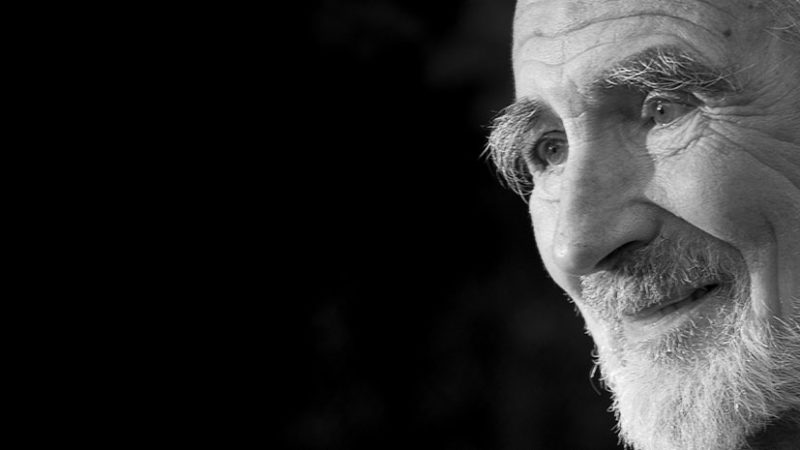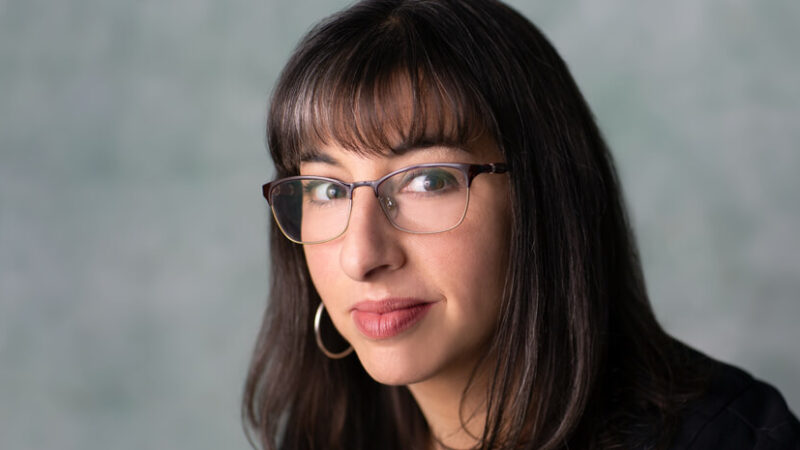-
E117: The Real Work: Letting Go from Within
Michael Singer — October 2, 2025
True spirituality isn’t about mystical experiences or lofty ideals—it’s about honestly facing...
-
Once More: Reflections on Reincarnation and the Gap Between Lives
Tami Simon — September 26, 2025
In this special reflection episode of Insights at the Edge host Tami Simon looks back on her...
-
Honey Tasting Meditation: Build Your Relationship with Sweetness
There is a saying that goes “hurt people hurt people.” I believe this to be true. We have been...
Written by:
Amy Burtaine, Michelle Cassandra Johnson
-
Many Voices, One Journey
The Sounds True Blog
Insights, reflections, and practices from Sounds True teachers, authors, staff, and more. Have a look—to find some inspiration and wisdom for uplifting your day.
Standing Together, and Stepping Up
Written By:
Tami Simon -
The Michael Singer Podcast
Your Highest Intention: Self-Realization
Michael Singer discusses intention—"perhaps the deepest thing we can talk about"—and the path to self-realization.
This Week:
E116: Doing the Best You Can: The Path to Liberation -
Many Voices, One Journey
The Sounds True Blog
Insights, reflections, and practices from Sounds True teachers, authors, staff, and more. Have a look—to find some inspiration and wisdom for uplifting your day.
Take Your Inner Child on Playdates
Written By:
Megan Sherer
600 Podcasts and Counting...
Subscribe to Insights at the Edge to hear all of Tami's interviews (transcripts available, too!), featuring Eckhart Tolle, Caroline Myss, Tara Brach, Jack Kornfield, Adyashanti, and many more.
Most Recent
David Steindl-Rast: Grateful Living in the ‘Double R...
Brother David Steindl-Rast is an internationally renowned author, lecturer, and pivotal member of the monastic renewal movement. A monk in the Benedictine tradition, Brother David is also an expert in Zen Buddhism and a tireless advocate for building bridges between Eastern and Western religious traditions. With Sounds True, Brother David created the audio program The Grateful Heart. In this episode of Insights at the Edge, Tami Simon and Brother David talk about the innate longing that drives spiritual study and is the impetus for seeking out a monastic life. Tami and Brother David explore the concept of the “Double Realm” that lies beyond standard concepts of time and existence, as well as how practicing gratitude can be a doorway to that realm. Finally, Brother David considers the future of religion and spirituality as he enters his nineties.(61 minutes)
3 Ways to Overcome Overwhelm This Holiday Season
The holiday season can be a joyous and fun time for many, and a sad or lonely time for others. But regardless of how this season sits, it is almost always a time of increased stress and overwhelm.
With these simple steps, you can cut down your own stress and find peace of mind.
Get crystal clear on what is MOST important to you
With clarity about your values, you will be able to decide what you are going to say ‘yes’ to and what you are going to say ‘no’ to with greater ease and grace. If you want to feel peaceful? Say no to the four parties on one day. If you want to feel energetic? Put your phone down and go to bed on time. If you want to keep your immune system healthy? Go easy on the sugar and alcohol and make healthy food choices.
Volunteer!
Studies show that volunteering is good for your own stress level—as long as your motivation is for the benefit of others and not yourself. Find an organization you think is doing great work and carve out some time to help.
Set clear boundaries
With the onslaught of parties and events, visitors and responsibilities, it’s easy to get into more than we can reasonably handle. Don’t be afraid to say ‘no.’ My favorite tip for this is to tell people, when they ask me for something, is to say that “I’m not 100% sure if that can work for me; I’ll send you an email by tomorrow end of day to let you know.” That gives you a chance to actually consider whether it is something you really want to do, and also makes it a little easier to let people down gently.
 Dr. Samantha Brody, author of Overcoming Overwhelm, is a naturopathic physician and acupuncturist and founder of Evergreen Natural Health Center in Portland, Oregon. Licensed as a primary care provider with extensive training and experience in both complementary and Western medicine, she has worked with over 30,000 patients and clients in the past twenty years. Her mission is to empower people to address the stress in their lives and help them to make changes that are in alignment with their personal health goals and values. She holds a doctoral degree in naturopathic medicine and a master’s degree in oriental medicine from the National University of Natural Medicine. She is a sought-after international speaker who educates lay and professional audiences on the issues of stress and health. Dr. Samantha writes for a variety of publications and has been quoted extensively in books and media outlets including the Los Angeles Times, Wall Street Journal, HuffPost, and Shape. Learn more at drsamantha.com.
Dr. Samantha Brody, author of Overcoming Overwhelm, is a naturopathic physician and acupuncturist and founder of Evergreen Natural Health Center in Portland, Oregon. Licensed as a primary care provider with extensive training and experience in both complementary and Western medicine, she has worked with over 30,000 patients and clients in the past twenty years. Her mission is to empower people to address the stress in their lives and help them to make changes that are in alignment with their personal health goals and values. She holds a doctoral degree in naturopathic medicine and a master’s degree in oriental medicine from the National University of Natural Medicine. She is a sought-after international speaker who educates lay and professional audiences on the issues of stress and health. Dr. Samantha writes for a variety of publications and has been quoted extensively in books and media outlets including the Los Angeles Times, Wall Street Journal, HuffPost, and Shape. Learn more at drsamantha.com.
The community here at Sounds True wishes you a lovely holiday season! We are happy to collaborate with some of our Sounds True authors to offer you wisdom and practices as we move into this time together; please enjoy this blog series for your holiday season.
To help encourage you and your loved ones to explore new possibilities this holiday season, we’re offering 40% off nearly all of our programs, books, and courses sitewide. May you find the wisdom to light your way.
3 Ways To Be Present This Holiday Season
Holidays are a mixed blessing … they’re times when we take a pause from our daily routines and share more personal time with family and friends—some who we love unconditionally, and those that we love “almost” unconditionally (as long as we don’t talk about politics, the environment, the world, etc.).
Here are a few easy suggestions to help show up in all holiday situations, while maintaining full presence and a sense of calm.
Seek Moments of Stillness
Look ahead to your holiday social events, then plan for intermittent moments to be by yourself for creating stillness, physically and mentally, away from the hustle and bustle of family activities (or the TV). It’s easier than you think, especially if you are truthful about its importance for your health with those around you. If they are curious what it does for you, encourage them to try it too. And after, be curious about their experience as a conversation-starter when you’re together again.
Seek Moments of Silliness
Calm is not easy when our mind is preoccupied and struggling with the chaos often found during the holidays. Luckily the human species is bestowed with the gift of humor and light-heartedness, which research shows is capable of overriding the mind’s obsessive or compulsive tendencies to overwhelm our emotions, and take us out of the present. Engaging in a bit of silliness is literally child’s play and an elixir to bring us back to the present that helps strengthen connection and community.
Breathe Slow and Soft
Awareness of breath is one of the most common techniques for staying present in our “moments” during the holidays. By simply making the sound of our breath soft and the breath’s rhythm slow, we create a more naturally conscious state of being that stimulates our body’s parasympathetic response. This releases the tension and stress our sympathetic nervous system naturally creates during times of anxiety or distress. Remembering this during the upcoming season is truly the best gift you can give!
 Peter Sterios, author of Gravity and Grace, is a popular yoga teacher and trainer with over four decades experience. He’s the founder of LEVITYoGA™ and MANDUKA™, as well as KarmaNICA™, a charitable organization for underprivileged children in rural Nicaragua. Sterios taught yoga at the White House for Michelle Obama’s anti-obesity initiatives for three years, and in 2018 he was invited to the Pentagon to share yoga’s therapeutic effects with the US Marine Corps. He resides in San Luis Obispo, CA. For more, visit LEVITYoGA.com.
Peter Sterios, author of Gravity and Grace, is a popular yoga teacher and trainer with over four decades experience. He’s the founder of LEVITYoGA™ and MANDUKA™, as well as KarmaNICA™, a charitable organization for underprivileged children in rural Nicaragua. Sterios taught yoga at the White House for Michelle Obama’s anti-obesity initiatives for three years, and in 2018 he was invited to the Pentagon to share yoga’s therapeutic effects with the US Marine Corps. He resides in San Luis Obispo, CA. For more, visit LEVITYoGA.com.
The community here at Sounds True wishes you a lovely holiday season! We are happy to collaborate with some of our Sounds True authors to offer you wisdom and practices as we move into this time together; please enjoy this blog series for your holiday season.
To help encourage you and your loved ones to explore new possibilities this holiday season, we’re offering 40% off nearly all of our programs, books, and courses sitewide. May you find the wisdom to light your way.
Customer Favorites
Jill Koziol and Liz Tenety: Redefining the Motherhood ...
Jill Koziol and Liz Tenety are the founders of Motherly, a website and support network devoted to redefining modern motherhood. With Sounds True, they have created This Is Motherhood: A Motherly Collection of Reflections + Practices. In this special edition of Insights at the Edge, Sounds True associate publisher Jaime Schwalb sits down with Jill and Liz to talk about how they originally formed Motherly and their desire to create a more positive approach to modern parenting. They talk about the importance of regular self-care practices for parents and why it really does take a village (even a digital one) to raise a child. Liz and Jill explain how each parent has their own skills and “superpowers,” as well as how you can recognize them. Finally, Jaime, Jill, and Liz discuss the discipline and clear communication needed to effectively parent. (54 minutes)
E43: Life as a Teacher: Lessons in Acceptance and Clar...
Acceptance and surrender are key spiritual principles that focus on embracing reality as it is and using it to let go of inner resistance and turmoil. Seen in this light, life’s challenges are not problems; they are opportunities for growth and spiritual evolution. For example, karma is not a punishment but a learning tool encouraging you to evolve consciously. By practicing acceptance and surrender, individuals can achieve clarity and respond to situations thoughtfully, which fosters great spiritual growth.
For more information, go to michaelsingerpodcast.com.
© Sounds True Inc. Episodes: © 2025 Michael A. Singer. All Rights Reserved.
Rabbi Danya Ruttenberg: Mending the World with a Proph...
Every spiritual tradition teaches that we are all interconnected. Yet when we are faced with the world’s many injustices, we often want to turn away and isolate ourselves rather than feel the full measure of our grief, anger, and fear. In this podcast, Tami Simon speaks with Rabbi Danya Ruttenberg about how we can choose another path—one of openly encountering others with deep connection, accessing our prophetic voice to speak truth to power, and taking action while staying grounded in our spiritual selves.
Give a listen to this moving conversation exploring connecting to “the still, small voice” within yourself; Rabbi Nachman’s practice of the inner scream; allowing our bodies and hearts to process what we see in the world; our obligations as bystanders of harm; leaving your “spiritual bubble” to engage in real activism; speaking uncomfortable truths; the five steps involved in the work of repentance and repair; why the best spiritual practice is done in community; the practice of rest as a social justice issue; prayer, the work of the heart; and much more.






